News
The Golden Gift of the Savannah: The untold story of Shea Nut and Shea Butter

In the vast Savannah of Northern Ghana, where the sun ‘kisses’ the earth stands a tree revered for its economic and cultural significance – the shea tree.
For centuries, the shea nut plucked from this resilient tree, has been the lifeblood of countless women and communities, shaping economies, traditions, and futures across the northern regions of Ghana.
To many women, shea butter is not merely an ingredient in cosmetics and skincare.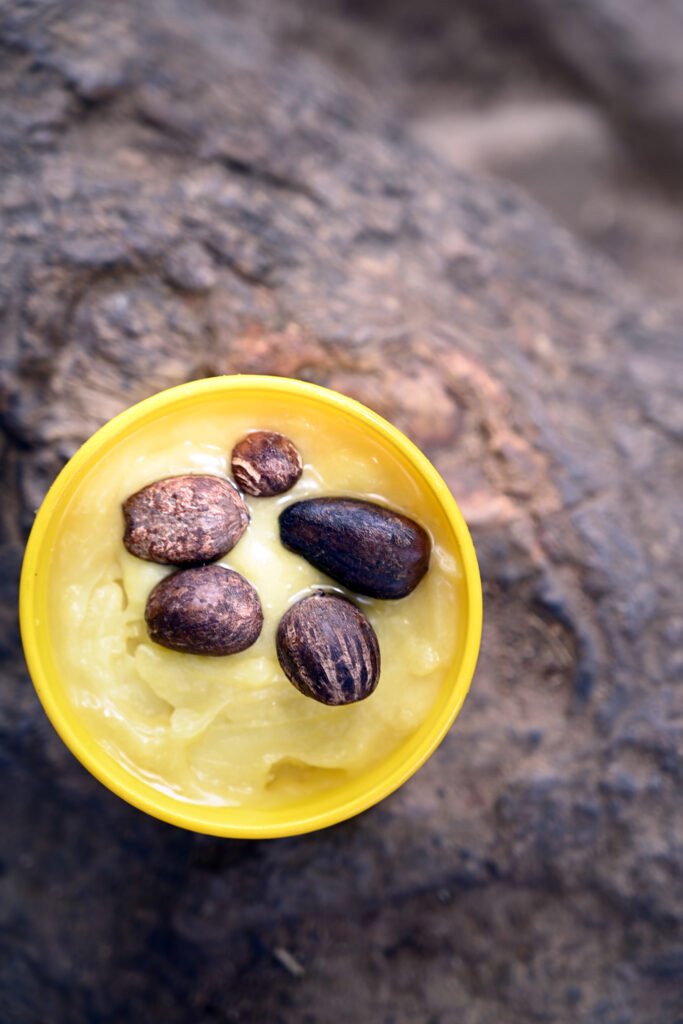
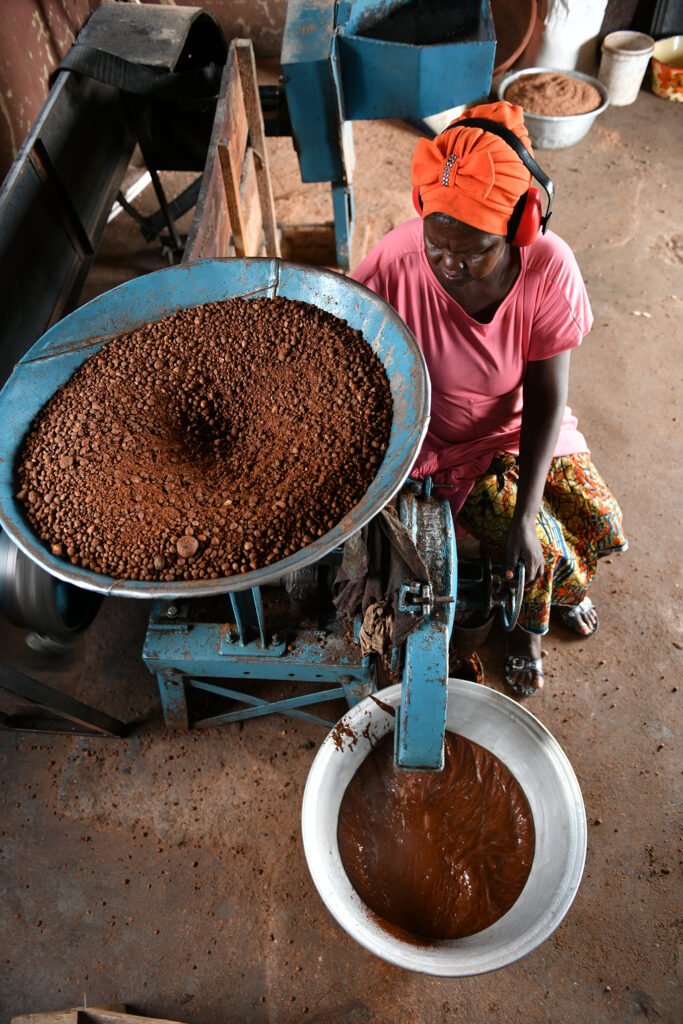
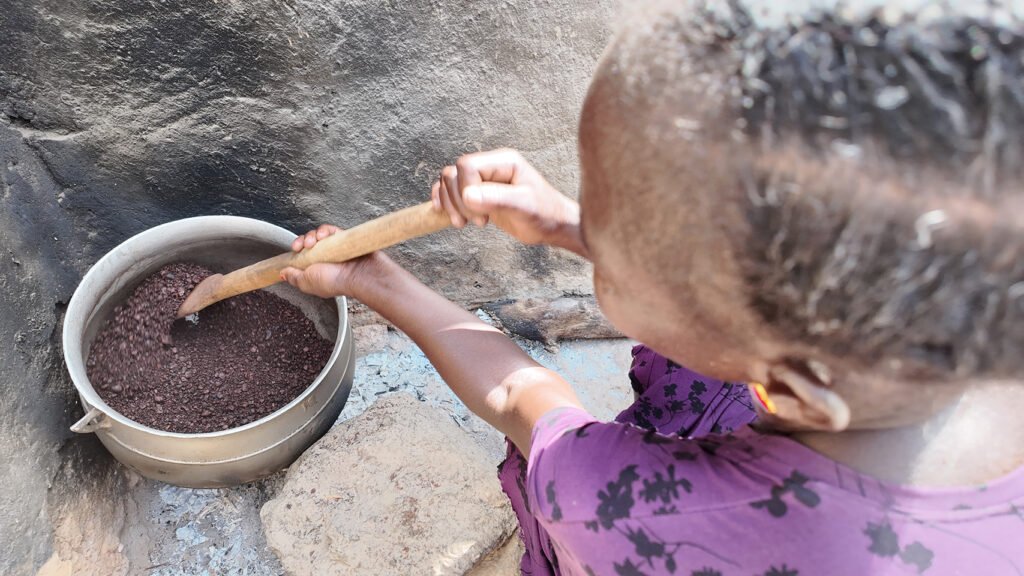
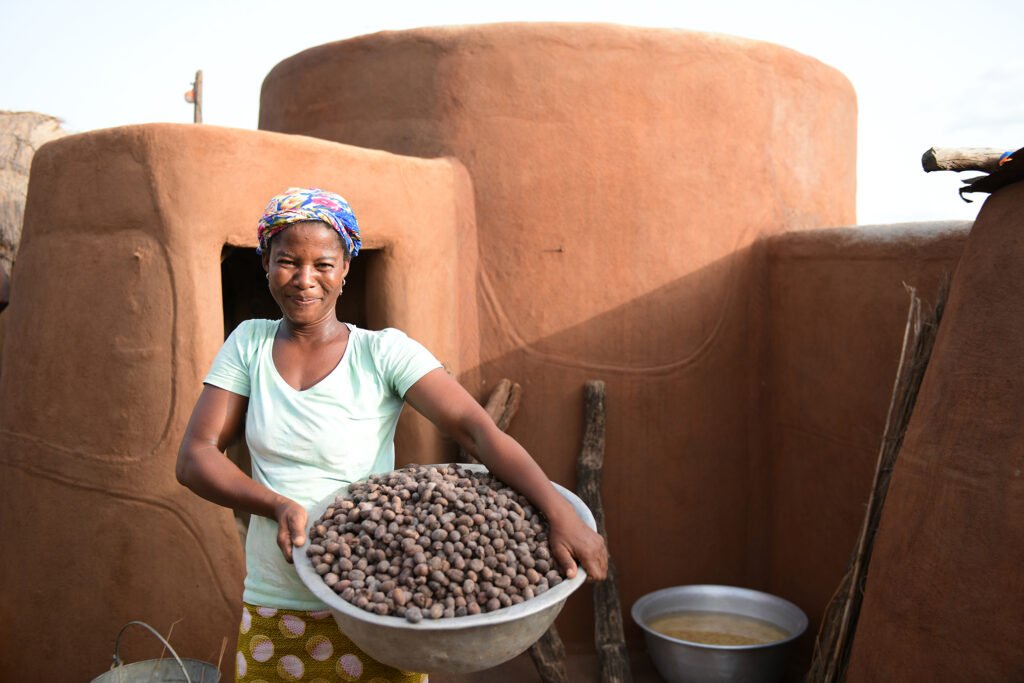
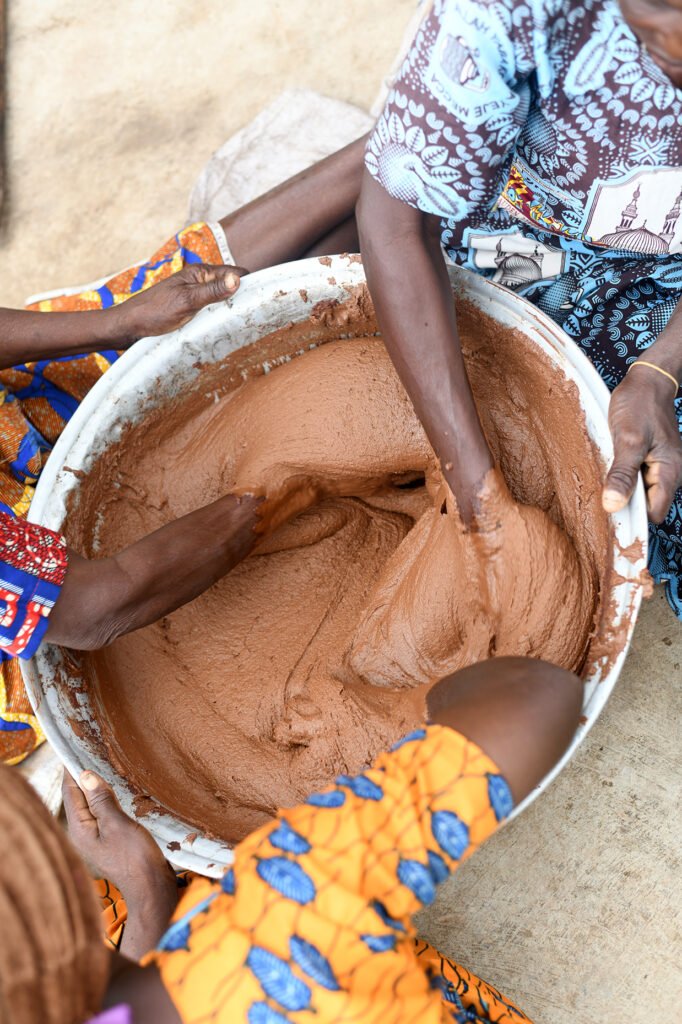
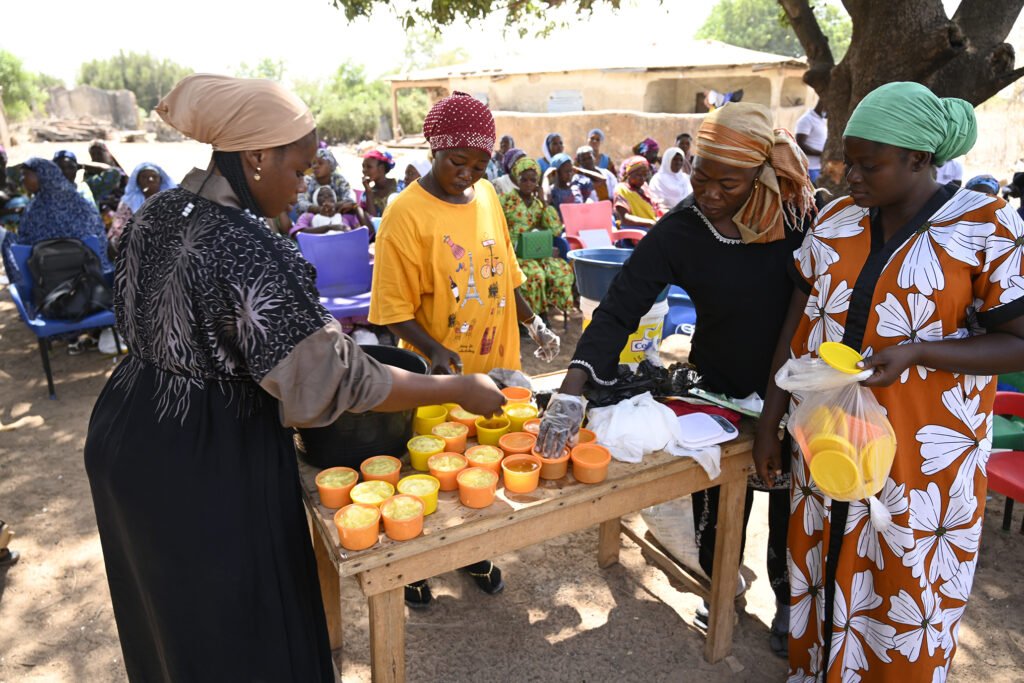
It is a symbol of resilience and economic empowerment. This golden treasure provides a sustainable income for women who painstakingly gather, dry, and process the nuts into a rich butter renowned worldwide for its healing and moisturizing properties.
Beyond its nuts, the shea tree produces a sweet, edible fruit packed with vitamins and nutrients. Its pulp is an excellent source of vitamin C, fiber, and antioxidants, which boost immunity, aid digestion, and promote overall health.
The fruit, often consumed fresh, serves as an essential source of nourishment for rural communities.
However, the journey from shea nut to shea butter is a laborious process requiring skill, patience, and sheer determination.
Women venture into the wild, walk long distances to collect fallen shea nuts.
After gathering, the nuts are boiled, sun-dried, and cracked open to reveal the kernels. These kernels are then roasted, grinded, and kneaded by hand until the oil separates from the solids, forming the smooth, fragrant butter which is now a staple in beauty and pharmaceutical industries, globally.
Shea butter is not the only valuable product derived from this remarkable tree. The shea nut also yields a highly nutritious cooking oil used traditionally in West African cuisine.
Rich in healthy fats, it promotes heart health and serves as a healthier alternative to palm oil and other cooking oils.
As global interest in natural and sustainable products grows, the demand for shea butter has surged.
Major cosmetic brands have embraced it as a key ingredient in lotions, hair products, and medicinal ointments, thanks to its high concentrations of vitamins A and E and anti-inflammatory properties.
Additionally, the food industry now recognises shea butter as a viable alternative to cocoa butter in chocolate production, further expanding its market value.
Yet, despite its growing international appeal, the shea industry faces significant challenges.
Climate change threatens the sustainability of shea trees, while middlemen and unfair pricing structures often limit the earnings of the women who produce the butter.
However, initiatives promoting fair trade, value addition, and sustainable harvesting practices offer hope for better economic returns for shea producers.
Organisations and cooperatives are working tirelessly to protect the shea tree and enhance the livelihoods of shea butter producers.
By introducing modern processing techniques, offering training programmes, and securing fair trade agreements, these efforts are ensuring that the legacy of shea butter continues to benefit local communities for generations to come.
Maria Johana Yuorpor, one of the women leading this transformation is a dedicated shea butter processor. For over a decade, she has championed quality production while equipping women with the skills to refine and add value to this ‘women’s gold.’
Maria’s journey into the shea butter industry was not one of mere chance but of deep-rooted passion and an unyielding commitment to uplift her community.
Growing up in a region where shea butter was a staple in homes used for cooking, skincare, and medicinal purposes, she witnessed firsthand its potential as a tool for economic empowerment.
Determined to make a difference, she immersed herself in intensive research and training, perfecting her craft to meet international standards.
Over the years, her expertise and commitment to quality production have earned her local and international recognition, shining a spotlight on Upper West shea butter.
According to Maria, the best shea butter comes from the Upper West Region due to the naturally rich and unpolluted environment in which shea trees flourish.
“The climate and soil here give our shea nuts a unique richness, which translates into high-quality butter with superior texture and moisturizing properties as well as the best way of processing it,” she explains.
Maria said, said when she begun understanding the importance of value addition, she started training women in her community on advanced processing techniques, including refining, packaging, and product diversification.
“Today, many of my trainees have expanded beyond producing raw shea butter to crafting soaps, body creams, and essential oils, all tailored for export markets”, she added.
To further enhance the shea industry and support women entrepreneurs, the Kosmos Innovation Center (KIC) among many organisations has stepped in with training and funding opportunities.
Mrs. Mercy Tuffour, Gender and Safeguarding Specialist in an interview said, KIC through their initiatives were training women on modern techniques in product formulation, branding, and market access, allowing them to elevate their shea-based businesses.
She emphasised the significance of these interventions: “We are committed to equipping women with the skills and resources needed to create high quality shea products that can compete in both local and international markets.
By adding value to raw shea butter, these women are transforming their livelihoods and securing better financial futures, where Northern Ghana becomes the hub of premium shea butter exports, driven by women entrepreneurs, she added.
She also advocated increased investment in shea butter processing facilities and seeks partnerships with global skincare and cosmetic brands to highlight Ghana’s superior shea butter.
As Maria Johana Yuorpor continues her mission, her story serves as an inspiration to many – proof that with passion, knowledge, and resilience, local resources can be transformed into global opportunities, changing lives one shea nut at a time.
Story/Photos from Geoffrey Buta, Nyoli, Upper West
News
38-year-old woman arrested for stealing one-week-old baby at Wa Market

The Upper West Regional Police Command has arrested a 38-year-old woman, Abena Martha Maanibeh, for stealing a one-week-old baby and other valuables belonging to the baby’s mother at Wa Market (Kejetia).
According to a police statement, the incident happened on August 10, 2025. The complainant, Ms. Kwofie Mwinbelle, had given birth to a baby boy at the Wa Regional Hospital on August 1.
The suspect, who was working as a caretaker for another patient at the hospital, tricked the new mother into following her to Wa Market to buy baby diapers.
She then took advantage of the situation to run away with the baby and the mother’s handbag, which contained a mobile phone, cash, and other items.
Police investigations, led by ASP Stella Atukwia of the Domestic Violence and Victim Support Unit, traced the suspect to her hideout at Nuobollie in the Savannah Region.
She was arrested on August 15, 2025. The stolen baby was found safe and reunited with his mother, and some of the stolen belongings were recovered.
The suspect appeared before the Wa District Magistrate Court on August 18, 2025 and has since been remanded into custody and will reappear on September 2, 2025.
The Upper West Regional Police Command assured the public of its commitment to protect lives and property.
It also thanked residents for their vigilance and support, which helped in arresting the suspect.
By: Jacob Aggrey
News
NPP is a diverse party, let’s end religious and tribal bigotry campaigns – Dr. Bawumia

Flagbearer hopeful of the New Patriotic Party in the 2028 elections (NPP) and former Vice President of the Republic of Ghana, Dr. Mahamudu Bawumia, has cautioned against the use of religious and tribal sentiments in the party’s internal campaign.
Dr. Bawumia expressed concern that some campaigners and flagbearer hopefuls were introducing divisive arguments, including claims that delegates should not vote for him because his wife is not a “true Ghanaian.”
He described such claims as disturbing and unrepresentative of the values of the NPP.
“We are a very diverse party covering four religions and all tribes. It is important that we remain united,” he said.
He urged his opponents to contest on the strength of their vision, mission, ideas, integrity, and track record, rather than attacking personalities based on religion or ethnicity.
Citing his own record, Dr. Bawumia reminded party members of his contributions to the NPP’s victories in 2016 and 2020, including his role in the 2013 election petition and his wife Samira’s nationwide campaign efforts.
He noted that at those times, nobody questioned his background or his wife’s identity.
He stressed that attempts to divide the party along religious or tribal lines do not reflect the views of the NPP’s rank and file.
“The NPP will always triumph over tribal and religious bigots. What we need is unity to go forward and win 2028,” he stated.
Dr. Bawumia further cautioned the party not to repeat past mistakes, recalling how divisions cost the NPP the 1979 elections.
He expressed confidence that with unity and hard work, the party could secure victory in the 2028 general elections.
By: Jacob Aggrey














